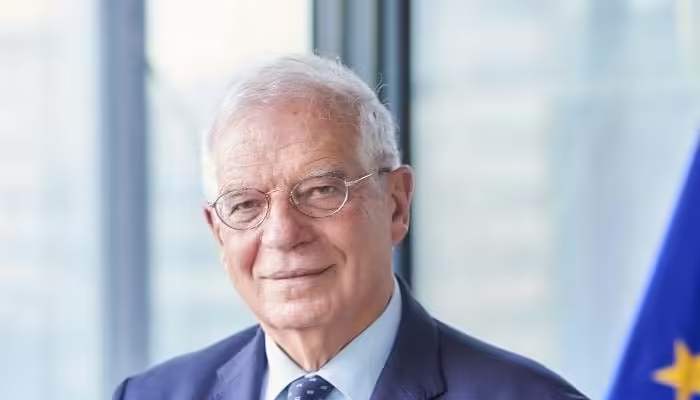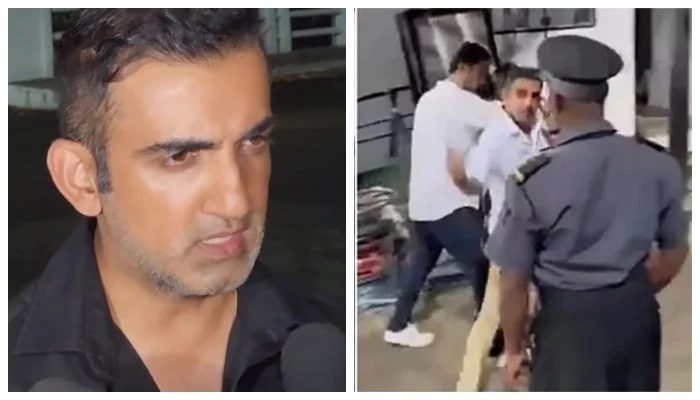Brussels: European Union foreign policy chief Joseph Borrell recently expressed his dissatisfaction with the level of assistance provided to the people of Gaza, highlighting the EU’s shortcomings in addressing the humanitarian crisis in the region. In an interview with an Israeli newspaper, Borrell openly admitted that the EU’s response to the dire situation in Gaza has been inadequate, signaling a deep sense of disappointment over the international community’s inability to meet the needs of Gaza’s beleaguered population.
The EU’s Shortcomings in Gaza
Borrell’s candid remarks underscored the European Union’s failure to provide adequate support to the people of Gaza, who have long been subjected to severe hardships due to ongoing conflicts and blockades. “Gaza responded well, but not as much as we should have done,” Borrell stated, acknowledging the EU’s inability to extend the necessary level of humanitarian aid. This admission reflects a broader issue within the international community, where pledges of support often fall short of the actual needs on the ground.
The situation in Gaza has been particularly dire, with its residents enduring extreme conditions, including shortages of essential goods, limited access to healthcare, and frequent disruptions caused by ongoing conflicts. Despite international awareness of these challenges, the response has been insufficient, leaving many in Gaza struggling to survive.
Challenges in Addressing Extremism
Beyond the humanitarian crisis in Gaza, Borrell also touched upon the broader issue of extremism within Israel’s government. He pointed out the difficulties in confronting the hardline elements within Prime Minister Benjamin Netanyahu’s administration, which have been accused of exacerbating tensions in the region. “We could not put the extremists of Netanyahu’s government in Kulgam,” Borrell remarked, referring to the EU’s inability to curtail the influence of ultra-nationalist factions that have been accused of fueling conflict with the Palestinians.
The rise of extremist rhetoric and policies within the Israeli government has been a growing concern for the international community. Borrell’s comments highlight the frustration within the EU over its limited capacity to influence these internal dynamics, which have significant implications for the peace process in the Middle East. The failure to address these issues has contributed to the ongoing instability in the region, further complicating efforts to achieve a lasting resolution to the Israeli-Palestinian conflict.
Call for Sanctions Against Israeli Extremists
In a recent informal meeting of European Union foreign ministers in Belgium, Borrell went a step further by advocating for targeted sanctions against Israeli ministers who have made inflammatory statements against Palestinians. This call reflects a growing frustration within the EU over the lack of accountability for actions and rhetoric that undermine peace efforts.
Borrell’s proposal for sanctions is part of a broader push within the EU to take a more assertive stance against human rights violations and extremist behavior. The suggestion that the EU should impose sanctions on Israeli officials is a significant development, indicating a willingness to confront the hardline elements within the Israeli government more directly. However, this approach is likely to face significant opposition, both within the EU and from Israel, where such measures would be seen as a hostile act.
The Need for a Renewed Commitment to Peace
Borrell’s remarks serve as a stark reminder of the ongoing challenges facing the international community in its efforts to support the people of Gaza and promote peace in the Middle East. The EU’s shortcomings in providing sufficient aid, coupled with its inability to effectively address extremism within the Israeli government, highlight the need for a renewed commitment to these issues.
Moving forward, it is crucial for the EU and the broader international community to reassess their strategies in the region. This includes not only increasing humanitarian aid to Gaza but also taking concrete steps to address the root causes of the conflict, including the rise of extremism on both sides. Only through a comprehensive and sustained effort can the international community hope to make a meaningful impact in the region.
Borrell’s call for sanctions against Israeli ministers is a bold move that underscores the urgency of the situation. However, for such measures to be effective, they must be part of a broader strategy that includes diplomatic engagement, support for human rights, and a commitment to the long-term goal of peace. The challenges are immense, but the stakes are too high to allow the current situation to persist.
Joseph Borrell’s recent statements reflect a deep sense of frustration within the EU over its inability to adequately support the people of Gaza and address the rise of extremism within Israel. His call for sanctions against Israeli ministers is a sign that the EU may be ready to take a more assertive stance, but it will require a concerted effort from the entire international community to bring about meaningful change in the region.



